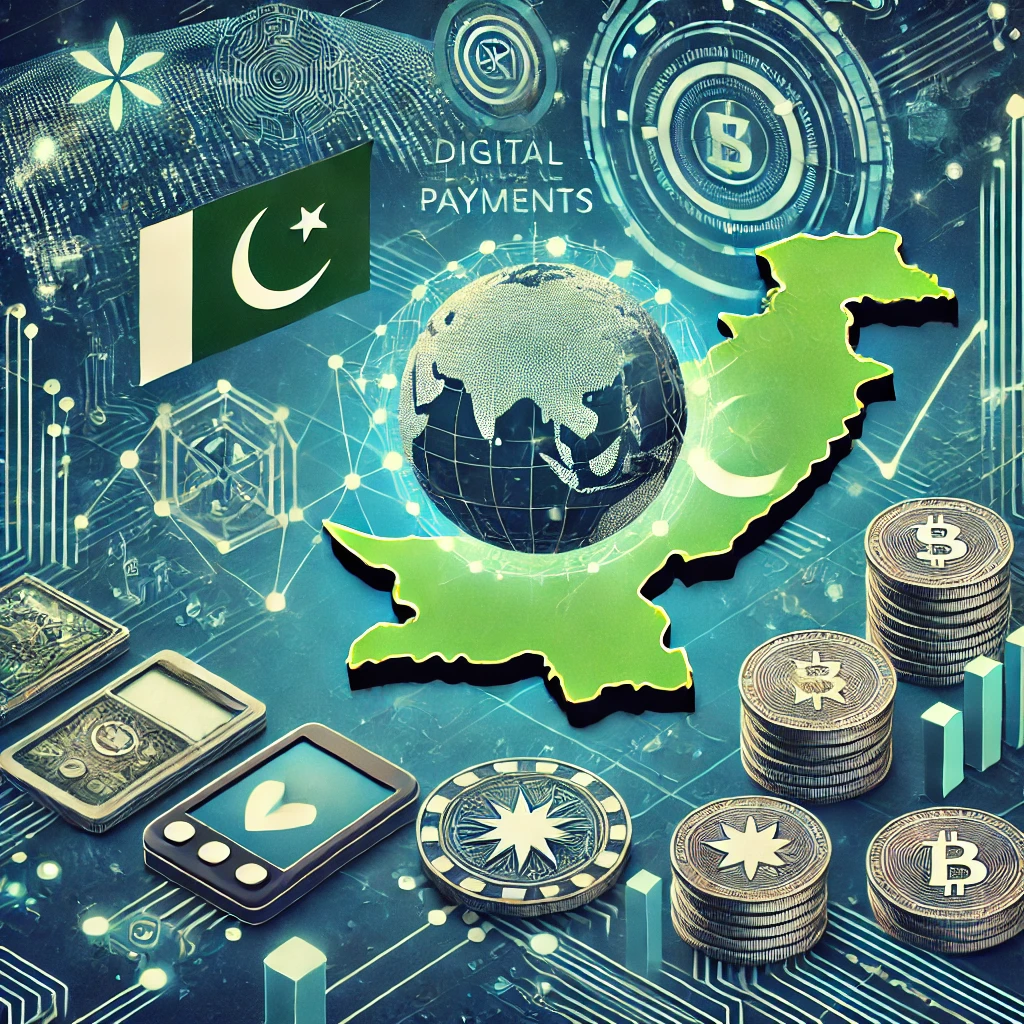Financial technology, commonly known as Fintech, is rapidly transforming the global financial landscape, and Pakistan is no exception. Over the past decade, the country has witnessed a significant shift towards digital financial solutions, reshaping how individuals and businesses manage money, access banking services, and conduct transactions. The rise of fintech in Pakistan is driven by various factors, including an expanding mobile and internet user base, regulatory reforms, and a growing need for financial inclusion. This article explores the evolution, impact, and future prospects of fintech in Pakistan.
The Evolution of Fintech in Pakistan
Historically, Pakistan’s financial sector has been dominated by traditional banks, with limited access to financial services, especially in rural and underdeveloped areas. The majority of the population remained unbanked, relying on informal channels to save, borrow, and transfer money. However, with the advent of mobile technology and the growing availability of smartphones, fintech has emerged as a viable solution to bridge this gap.
The introduction of branchless banking services, such as Easypaisa and JazzCash, was a key milestone in Pakistan’s fintech journey. These services allowed users to open mobile wallets, make bill payments, and transfer money without needing a traditional bank account. Since then, the fintech ecosystem has expanded, encompassing various solutions like mobile banking apps, payment gateways, peer-to-peer lending platforms, and online investment platforms.
Key Drivers of Fintech Growth in Pakistan
Several factors have contributed to the rapid growth of fintech in Pakistan:
- Increased Smartphone Penetration: With over 100 million mobile broadband subscribers, the accessibility of smartphones has made digital financial services more convenient and widespread. As more people come online, fintech providers can offer financial solutions to previously underserved populations.
- Government Support and Regulation: The State Bank of Pakistan (SBP) and the Securities and Exchange Commission of Pakistan (SECP) have taken proactive measures to regulate and promote fintech. Initiatives such as the National Financial Inclusion Strategy (NFIS) and the launch of the Raast instant payment system have facilitated fintech growth, enabling secure and seamless digital transactions across the country.
- Financial Inclusion: A significant portion of Pakistan’s population remains unbanked, with limited access to formal banking services. Fintech solutions have played a crucial role in bringing financial services to this population, enabling them to save, borrow, and make payments digitally. Mobile wallets, microfinance platforms, and digital lending services have made it easier for individuals in remote areas to participate in the formal economy.
- Youthful Demographics: With over 60% of Pakistan’s population under the age of 30, there is a strong demand for digital-first solutions. The younger generation is tech-savvy and prefers mobile-based financial services over traditional banking. This demographic shift has created a fertile ground for fintech companies to grow and innovate.
- COVID-19 Pandemic: The pandemic accelerated the adoption of digital financial services as lockdowns and social distancing measures made it difficult to access physical banking services. E-commerce, digital payments, and online banking services surged, further highlighting the importance of fintech in the modern economy.
Impact of Fintech on Pakistan’s Financial Sector
The rise of fintech has had a profound impact on Pakistan’s financial sector in several ways:
- Improved Access to Financial Services: Fintech has democratized access to financial services, allowing individuals and businesses to conduct transactions, save money, and access credit through mobile apps and digital platforms. This has greatly improved financial inclusion, particularly in underserved areas.
- Enhanced Efficiency and Convenience: Digital financial services are faster, more efficient, and convenient compared to traditional banking. From making instant payments to accessing loans without lengthy approval processes, fintech solutions have streamlined financial transactions for consumers and businesses alike.
- Growth of E-commerce: The expansion of fintech has fueled the growth of Pakistan’s e-commerce sector. Online payment gateways, mobile wallets, and digital payment solutions have made it easier for consumers to shop online and for businesses to accept digital payments. This has spurred the growth of local e-commerce platforms and global players in the Pakistani market.
- Financial Literacy: As fintech adoption increases, so does the need for financial literacy. Digital platforms have provided consumers with easy access to information on personal finance, savings, and investments, enabling them to make more informed financial decisions.
Challenges Facing Fintech in Pakistan
While the fintech sector in Pakistan shows immense potential, it faces several challenges:
- Regulatory Hurdles: Although the SBP and SECP have made strides in creating a conducive regulatory environment, the sector still faces certain challenges, including lengthy approval processes, evolving compliance requirements, and a lack of clarity in some areas of fintech regulation.
- Cybersecurity and Trust Issues: As with any digital platform, fintech services are vulnerable to cyberattacks and fraud. Building trust among users, especially in rural areas where digital literacy is low, is crucial for the sustained growth of fintech in Pakistan.
- Financial Infrastructure: Despite recent improvements, Pakistan’s digital financial infrastructure still lags behind more developed markets. Improving broadband access, mobile network reliability, and digital payment systems is essential to fostering fintech growth.
- Limited Financial Literacy: Many individuals in Pakistan still lack basic financial literacy and understanding of how to use digital financial services. This gap needs to be addressed through targeted educational initiatives.
The Future of Fintech in Pakistan
The future of fintech in Pakistan looks promising, with significant growth potential. As the government continues to prioritize digital financial inclusion and invest in the digital economy, fintech companies have an opportunity to further revolutionize the financial landscape.
Innovations in blockchain technology, cryptocurrencies, and artificial intelligence (AI) are likely to play a role in the next phase of fintech development in Pakistan. Additionally, increased partnerships between traditional financial institutions and fintech startups could lead to more collaborative solutions that benefit both consumers and businesses.
In conclusion, the rise of fintech in Pakistan is reshaping the country’s financial sector, providing new opportunities for financial inclusion, economic growth, and innovation. By addressing regulatory challenges, improving digital infrastructure, and enhancing financial literacy, Pakistan is well-positioned to become a regional leader in fintech development.


Add a Comment